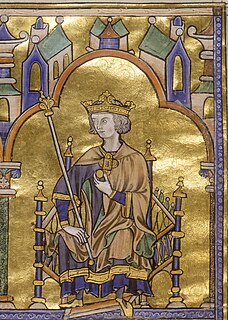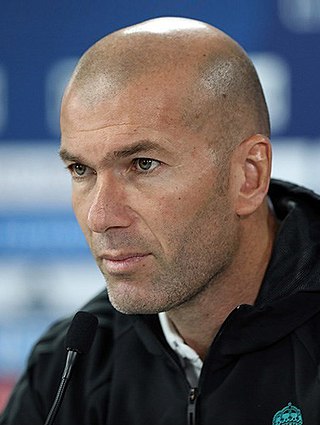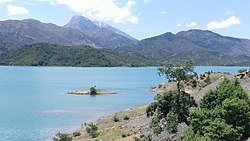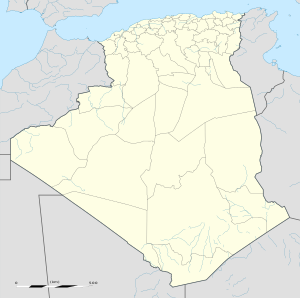
French is a Romance language of the Indo-European family. It descended from the Vulgar Latin of the Roman Empire, as did all Romance languages. French evolved from Gallo-Romance, the Latin spoken in Gaul, and more specifically in Northern Gaul. Its closest relatives are the other langues d'oïl—languages historically spoken in northern France and in southern Belgium, which French (Francien) largely supplanted. French was also influenced by native Celtic languages of Northern Roman Gaul like Gallia Belgica and by the (Germanic) Frankish language of the post-Roman Frankish invaders. Today, owing to France's past overseas expansion, there are numerous French-based creole languages, most notably Haitian Creole. A French-speaking person or nation may be referred to as Francophone in both English and French.

The French Revolution was a period of social and political upheaval in France and its colonies beginning in 1789 and ending in 1799. The Revolution overthrew the monarchy; established a republic; catalyzed violent periods of political turmoil; and finally culminated in a dictatorship under Napoleon, who brought many of the revolution's principles to areas he conquered in Western Europe and beyond. Inspired by liberal and radical ideas such as equality before the law, the Revolution influenced the decline of absolute monarchies while replacing them with republics and liberal democracies.

Louis IX, commonly known as Saint Louis or Louis the Saint, is the only King of France to be canonized in the Catholic Church. Louis was crowned in Reims at the age of 12, following the death of his father Louis VIII; his mother, Blanche of Castile, ruled the kingdom as regent until he reached maturity. During Louis's childhood, Blanche dealt with the opposition of rebellious vassals and obtained a definitive victory in the Albigensian Crusade, which had started 20 years earlier.

Louis XIV, known as Louis the Great or the Sun King, was King of France from 14 May 1643 until his death in 1715. His reign of 72 years and 110 days is the longest recorded of any monarch of a sovereign country in European history. Louis XIV's France was emblematic of the age of absolutism in Europe.

Monaco, officially the Principality of Monaco, is a sovereign city-state, country, and microstate on the French Riviera in Western Europe. It is bordered by France to the north, east and west, and by the Mediterranean Sea to the south. The principality is home to 38,682 residents and is widely recognised for being one of the most expensive and wealthiest places in the world. The official language is French, although Monégasque, English and Italian are spoken and understood by a sizeable group.

Paris is the capital and most populous city of France, with an estimated population of 2,150,271 residents as of 2020, in an area of 105 square kilometres. Since the 17th century, Paris has been one of Europe's major centres of finance, diplomacy, commerce, fashion, science and arts. The City of Paris is the centre and seat of government of the Île-de-France, or Paris Region, which has an estimated official 2020 population of 12,278,210, or about 18 percent of the population of France. The Paris Region had a GDP of €709 billion in 2017. According to the Economist Intelligence Unit Worldwide Cost of Living Survey in 2018, Paris was the second most expensive city in the world, after Singapore, and ahead of Zürich, Hong Kong, Oslo and Geneva. Another source ranked Paris as most expensive, on a par with Singapore and Hong Kong, in 2018.

The French and Indian War (1754–1763) pitted the colonies of British America against those of New France, each side supported by military units from the parent country and by American Indian allies. At the start of the war, the French colonies had a population of roughly 60,000 settlers, compared with 2 million in the British colonies. The outnumbered French particularly depended on the Indians.

Louis XVI was the last king of France before the fall of the monarchy during the French Revolution. He was referred to as Citizen Louis Capet during the four months just before he was executed by guillotine. In 1765, upon the death of his father, Louis, Dauphin of France, he became the new Dauphin. Upon his grandfather Louis XV's death on 10 May 1774, he assumed the title King of France and Navarre, until 4 September 1791, when he received the title of King of the French until the monarchy was abolished on 21 September 1792.

Napoleon Bonaparte, born Napoleone di Buonaparte, was a French statesman and military leader who became famous as an artillery commander during the French Revolution. He led many successful campaigns during the French Revolutionary Wars and was Emperor of the French as Napoleon I from 1804 until 1814 and again briefly in 1815 during the Hundred Days. Napoleon dominated European and global affairs for more than a decade while leading France against a series of coalitions during the Napoleonic Wars. He won many of these wars and a vast majority of his battles, building a large empire that ruled over much of continental Europe before its final collapse in 1815. He is considered one of the greatest commanders in history, and his wars and campaigns are studied at military schools worldwide. Napoleon's political and cultural legacy has made him one of the most celebrated and controversial leaders in human history.

Huguenots were a religious group of French Protestants.

Zinedine Yazid Zidane, popularly known as Zizou, is a French former professional football player who played as an attacking midfielder. He is the current manager of La Liga club Real Madrid. Widely regarded as one of the greatest players of all time, Zidane was an elite playmaker renowned for his elegance, vision, passing, ball control, and technique. He received many individual accolades as a player, including being named FIFA World Player of the Year in 1998, 2000 and 2003, and winning the 1998 Ballon d'Or.

Marie-Joseph Paul Yves Roch Gilbert du Motier, Marquis de La Fayette was a French aristocrat and military officer who fought in the American Revolutionary War, commanding American troops in several battles, including the Siege of Yorktown. After returning to France, he was a key figure in the French Revolution of 1789 and the July Revolution of 1830.

The Siege of Yorktown, also known as the Battle of Yorktown, the surrender at Yorktown, or the German Battle, ending on October 19, 1781, at Yorktown, Virginia, was a decisive victory by a combined force of American Continental Army troops led by General George Washington and French Army troops led by the Comte de Rochambeau over a British army commanded by British peer and Lieutenant General Charles Cornwallis. The culmination of the Yorktown campaign, the siege proved to be the last major land battle of the American Revolutionary War in the North American region, as the surrender by Cornwallis, and the capture of both him and his army, prompted the British government to negotiate an end to the conflict. The battle boosted faltering American morale and revived French enthusiasm for the war, as well as undermining popular support for the conflict in Great Britain.

The France national football team represents France in men's international football and is controlled by the French Football Federation, also known as FFF, or in French: Fédération française de football. The team's colours are blue, white and red, and the coq gaulois its symbol. France are colloquially known as Les Bleus. They are the reigning world champions, having won the most recent World Cup final in 2018.

France 24 is a French state-owned international news television network based in Paris. Its channels broadcast in French, English, Arabic, and Spanish and are aimed at the overseas market, similar to BBC World News, DW, RT, TRT World, PTV WORLD and VOA.

France, officially the French Republic, is a country consisting of metropolitan France in Western Europe and several overseas regions and territories. The metropolitan area of France extends from the Mediterranean Sea to the English Channel and the North Sea, and from the Rhine to the Atlantic Ocean. It borders Belgium, Luxembourg and Germany to the northeast, Switzerland, Monaco, and Italy to the east, and Andorra and Spain to the south. The overseas territories include French Guiana in South America and several islands in the Atlantic, Pacific and Indian oceans. The country's 18 integral regions span a combined area of 643,801 square kilometres (248,573 sq mi) and a total population of 67.07 million. France is a unitary semi-presidential republic with its capital in Paris, the country's largest city and main cultural and commercial centre. Other major urban areas include Lyon, Marseille, Toulouse, Bordeaux, Lille and Nice. France, including its overseas territories, has the most time zones of any country, with a total of 12.

Vichy France is the common name of the French State headed by Marshal Philippe Pétain during World War II. Evacuated from Paris to Vichy in the unoccupied "Free Zone" in the southern part of metropolitan France which included French Algeria, it remained responsible for the civil administration of France as well as the French colonial empire.

French Guiana is an overseas department and region of France on the northern Atlantic coast of South America in the Guianas. It borders Brazil to the east and south and Suriname to the west. French Guiana is the only territory of the mainland Americas to have full integration in a European country.

Emmanuel Jean-Michel Frédéric Macron is a French politician who has been President of France and ex officio Co-Prince of Andorra since 14 May 2017.

The COVID-19 pandemic in France is part of the worldwide pandemic of coronavirus disease 2019 caused by severe acute respiratory syndrome coronavirus 2. The virus was confirmed to have reached France on 24 January 2020, when the first COVID-19 case in both Europe and France was identified in Bordeaux. The first five confirmed cases were all individuals who had recently arrived from China. A Chinese tourist who was admitted to hospital in Paris on 28 January died on 14 February, making it the first COVID-19 death in France as well as the first confirmed death outside Asia. A key event in the spread of the disease across Metropolitan France as well as its overseas territories was the annual assembly of the Christian Open Door Church between 17 and 24 February in Mulhouse which was attended by about 2,500 people, at least half of whom are believed to have contracted the virus. On 4 May, retroactive testing of samples in one French hospital showed that a patient was probably already infected with the virus on 27 December, almost a month before the first officially confirmed case.























